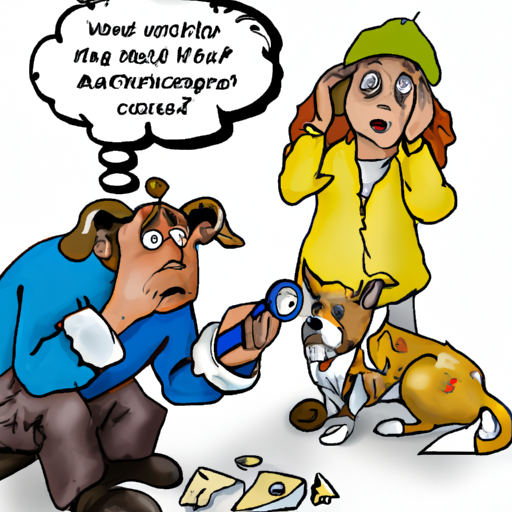As a caregiver to your furry friend, their health is paramount to you. You may have noticed some signs of discomfort and traced them back to yeast infections in their ears. You might be wondering what could have caused it. Is it the food they eat? You’re on the right track. In this piece, we will discuss the top culprits.
1. High-Sugar Foods
Yeast feeds on sugar. If a dog’s diet is high in sugar, it could potentially lead to a yeast infection in their ears.
- Some common high-sugar foods you might be giving your dog unknowingly include:
- Certain brands of dog food
- Treats with sugar in the ingredients
- Human food, especially desserts and fruits
Remember, moderation is key. It’s okay for your dog to have treats, but too many can potentially lead to problems.
2. Foods with High Carbohydrate Content
Just like sugar, yeast thrives on carbohydrates.
Some high-carb foods include:
* Rice
* Potatoes
* Wheat products
* Certain vegetables like carrots and peas
A balanced diet is crucial. Ensure your dog’s diet doesn’t lean heavily on these high-carb foods.
3. Dairy Products
Dairy products can sometimes cause yeast infections in dogs’ ears.
| Dairy Products | Reason |
|---|---|
| Milk | Lactose in milk can be hard for dogs to digest and can trigger yeast infections. |
| Cheese | While some dogs can handle cheese, others might react negatively, leading to yeast overgrowth. |
Again, the key is moderation. A little dairy might be fine, but too much could cause problems.
4. Foods with Artificial Additives
Certain additives in dog food can disrupt your dog’s gut flora, leading to yeast infections in their ears.
Watch out for:
* Artificial colors
* Artificial flavors
* Preservatives
Always check the ingredients of your dog’s food and treats to ensure they’re not consuming harmful additives.
5. Allergenic Foods
Some dogs are allergic to specific foods, which can cause an imbalance in the gut flora, leading to yeast infections.
Common allergenic foods include:
* Wheat
* Soy
* Corn
* Certain meats, like beef and chicken
If you notice your dog reacting negatively after eating certain foods, it might be worth getting them tested for food allergies.
Frequently Asked Questions
1. How do I know if my dog has a yeast infection in their ears?
* You might notice your dog shaking their head, scratching their ears, or an unusual smell. If you’re unsure, it’s best to consult a vet.
2. How can I prevent yeast infections in my dog’s ears?
* A balanced diet, regular cleaning of your dog’s ears, and regular check-ups with the vet can help prevent yeast infections.
3. Can yeast infections in dogs’ ears be cured?
* Yes, with the right treatment, yeast infections can be cured. However, the underlying cause, like an improper diet, should also be addressed.
Your beloved dog depends on you for their well-being. Understanding the potential triggers for yeast infections in their ears, like certain foods, can help you keep them healthy and happy.



